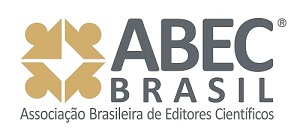VARIATION, CHANGE AND GRAMATICALIZAÇÃO PROCESS OF DEMONSTRATIVE PRONOUNS ILLE, ILLA, ILLUD FROM CLASSICAL LATIN TO DEFINITE ARTICLES OF THE PORTUGUESE OF BRAZIL
Keywords:
Classical Latin, Vulgar Latin, Processes of grammaticalization, ChangeAbstract
This work intends to expatiate on the processes of change and variation of the Latin demonstrative pronouns third party, ille illa, illud who came to become the Portuguese of Brazil in today's definite articles. It is known, on the basis of linguistic functionalism, all human activity is based on language use which makes this language. From this perspective, it is not the grammar of a language that determines their uses, but the opposite. That justifies the different gramaticalization that processes through the use of grammar that is determining the grammatical categories of a language, making grammatical elements that typically belong to a given grammatical category if grammaticalized in others, yet not losing your prototypical function. The demonstrative pronouns third person, ille illa, illud in Latin had the role of mark in space as the determiner the grammatical person of the speech and at the same time its deictic function. However with the use of Latin in real situations the pronoun passed slowly in vernaculars that deployed from Vulgar Latin (Latin usualis) to position themselves and function as elements determinants of nouns and adjectives, which was subsequently baptized of definite articles. This work has as theoretical basis functionalism American language, more specifically on the notion of use, variation, change, processes of grammaticalization and prototypical function of grammatical categories. It can be concluded based on the use of languages that the current articles of the Portuguese of Brazil are the old demonstrative pronouns from classical Latin than Vulgar Latin if grammaticalized in determinants of Brazilian Portuguese and other Romance languages.
Downloads
References
Trad. Aires da Mata Machado Filho; Paulo Rónai e Marcelo Marques Magalhães.
São Paulo: Editora Globo, 1960, p. 283-318.
CÂMARA JR., Joaquim Mattoso. História e estrutura da língua portuguesa. Rio de
Janeiro: Padrão, 1970.
____________. Estrutura da língua portuguesa. 36. ed. Petrópolis: Vozes, 2004.
COUTINHO, Israel de Lima. Pontos de Gramática Histórica. 7. Ed. Nacional. Rio de Janeiro: 1976.
FIORIN, José Luiz (Org.) A mudança linguística In: Introdução à Linguística I. Objetos teóricos. 5. ed. 1. impressão. São Paulo: Contexto, 2007.
NASCENTES, Antenor. Dicionário da Língua Portuguesa e Gramática da Academia Brasileira de Letras. Bloch. Rio de Janeiro: 1988.
TARALLO, Fernando. Tempos Linguísticos: itinerário histórico da Língua Portuguesa. Ática, São Paulo: Ática, 1986.
SAUSSURE, Ferdinand de. Curso de Linguística Geral. 9. ed. São Paulo: Cultrix, S/D, 1990.
MUSSALIM, Fernanda. & BENTES, Anna Christina (Org.). Introdução à linguística: fundamentos epistemológicos. 2. ed. são Paulo: Cortez, 2005, p. 165-218.
NEVES, Maria Helena de Moura. Uma introdução ao funcionalismo: proposições, escolas, temas e rumos. São Paulo:
FURTADO DA CUNHA, Maria Angélica; OLIVEIRA, Mariângela Rios de; MARTELOTTA, Mário Eduardo. (Org.). Linguística funcional: teoria e prática. Rio de Janeiro: DP & A, 2003.
WILLIANS, Edwin B. Do latim ao português: fonologia e morfologia históricas da língua portuguesa. Trad. Antônio Houaiss. Instituto Nacional do Livro, 1961.
Downloads
Published
How to Cite
Issue
Section
License
Copyright (c) 2016 Ivanaldo Oliveira dos Santos Filho, Julio Neto dos Santos

This work is licensed under a Creative Commons Attribution-NonCommercial-ShareAlike 4.0 International License.






